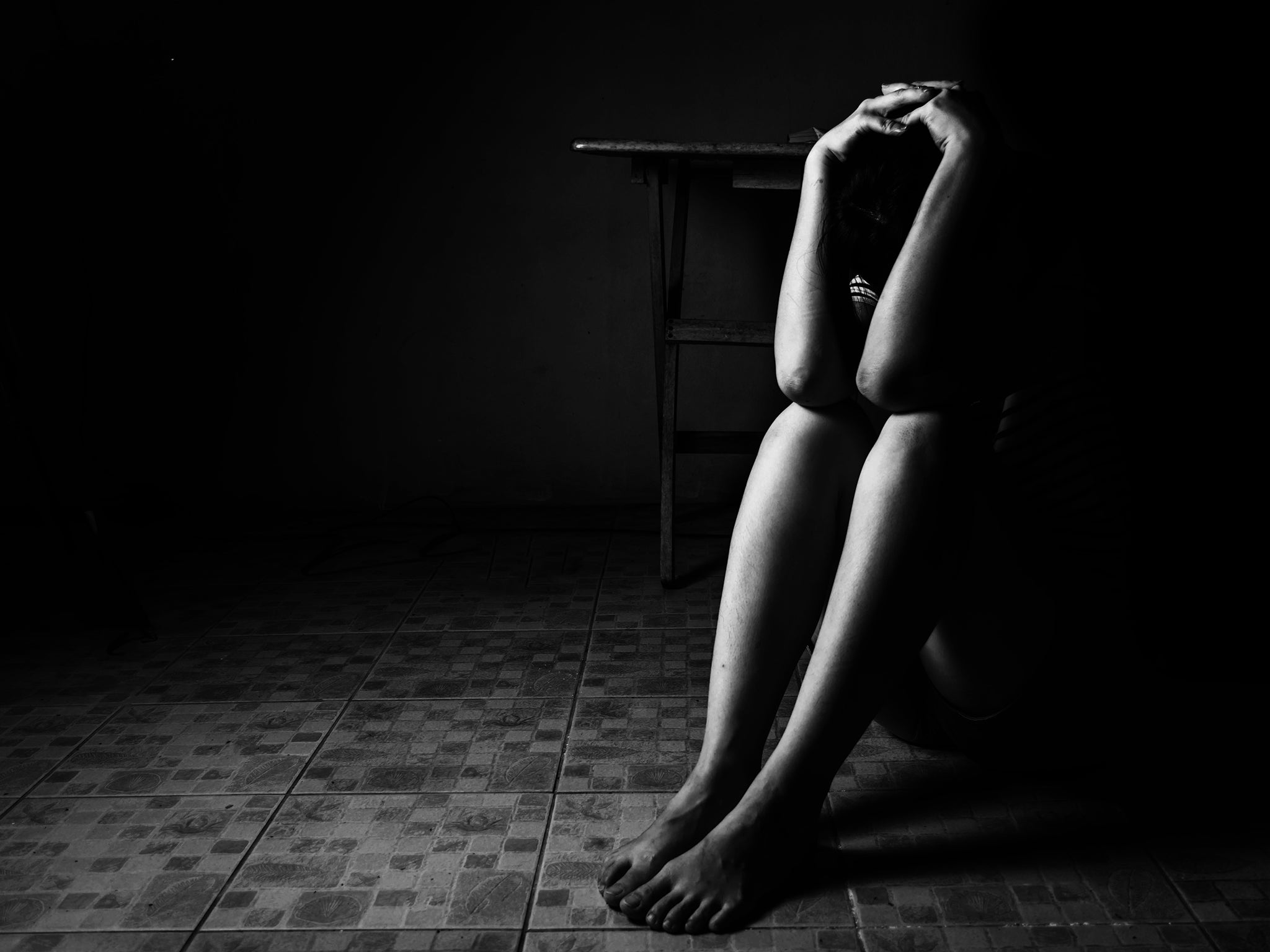Trafficking survivors need support to break the cycle of abuse
The measures included in the Nationality and Borders Bill do not adequately address the problem of human trafficking


Your support helps us to tell the story
From reproductive rights to climate change to Big Tech, The Independent is on the ground when the story is developing. Whether it's investigating the financials of Elon Musk's pro-Trump PAC or producing our latest documentary, 'The A Word', which shines a light on the American women fighting for reproductive rights, we know how important it is to parse out the facts from the messaging.
At such a critical moment in US history, we need reporters on the ground. Your donation allows us to keep sending journalists to speak to both sides of the story.
The Independent is trusted by Americans across the entire political spectrum. And unlike many other quality news outlets, we choose not to lock Americans out of our reporting and analysis with paywalls. We believe quality journalism should be available to everyone, paid for by those who can afford it.
Your support makes all the difference.Every year the British Red Cross supports hundreds of survivors of human trafficking in the UK.
The trauma that survivors of trafficking experience has long-lasting effects on their mental and physical health and ability to rebuild their lives. The exploitation they experience can take many forms, including forced labour and criminality, sexual exploitation and domestic servitude. Often, people are exploited in more than one way at once and are trafficked within countries and across borders.
Bearing witness to this trauma, we believe that no stone should be left unturned in the drive to end human trafficking and improve the care and support available to survivors of trafficking.
Our concern is that things are going to become more difficult for survivors of trafficking, and leaving exploitation will be even harder. To demonstrate, I’m going to share two stories of people we’ve supported. Their issues are common to the thousands of people exploited in the UK every year.
Last year, we supported Ben (not his real name). Ben is a British man in his early-20s. You might not realise it, but in the last two years, the most commonly referred nationality to the National Referral Mechanism (NRM) – the government’s system for determining whether they believe a person is a survivor of trafficking – was actually UK nationals.
Ben had been working and supporting himself, but then fell into difficulty when he lost his job. He couldn’t afford his rent anymore and was at risk of being made homeless. He reduced his spending however he could, by eating less and using less of his utilities, and his health declined.
Ben ended up being a victim of criminal exploitation – being forced to grow and sell cannabis. Fortunately, the police officers he came into contact with had received modern slavery training. This doesn’t always happen and Ben could just as easily have been treated as the perpetrator of the crime, and the real perpetrator never brought to justice, moving on to find other victims he can manipulate and control.
After he was detected by the police, Ben had nowhere he could safely go, and the police contacted the Red Cross requesting help. Currently, there is no central government-funded support immediately offered to survivors like Ben in the days after their ordeal.
In 2017, the government committed to funding “Places of Safety” that would provide at least three days of immediate accommodation and support after someone leaves exploitation. To date, these have not been introduced.
While the Red Cross, some local authorities, police forces and a small number of NGOs in the sector try to plug this gap, most people like Ben have no place to go and no opportunity to consider collaborating with the police and helping them to disrupt this criminal activity.
Rather than addressing this, the Nationality and Borders Bill increases the evidence needed to access the National Referral Mechanism. There should be more and better immediate support for people in the first hours after they leave exploitation, so that people like Ben are free to help the police bring their abusers to justice.
As well as providing immediate support to people like Ben, the Red Cross also offers longer term support to people after they have received a decision through the National Referral Mechanism.
Sheena (also not her real name) is from a west African country, and is in her late 30s. Sheena entered the NRM in 2018 after she was sexually exploited in the UK.
Sheena’s immigration status means she doesn’t have the right to work or study here, she was unable to do much other than worry about her situation while waiting for the outcome of her NRM decision.
Earlier this year, three years after her initial referral, the Home Office confirmed her as a survivor of human trafficking. Soon after this decision, she was required to move out of her Home Office-provided accommodation. Sheena had nowhere to go and was not eligible for support from her local authority because of her immigration status, even though she is now a confirmed survivor of human trafficking.
Due to the uncertainty, Sheena’s experience in the NRM was not one of recovery or restoration. For Sheena, and the many people like her, being recognised as a victim of trafficking comes with no support or security.
People like Sheena come to the Red Cross looking for help. The majority of our efforts are focused on helping them to access accommodation, legal advice, and mental health or physical health services for conditions that have often become chronic because they weren’t addressed earlier. Without leave to remain in the UK, Sheena and others like her are left in no position to collaborate with authorities to bring their traffickers to justice.
People who do not have settled immigration status are particularly at risk of re-trafficking and can be left facing homelessness and destitution. The measures included in the Nationality and Borders Bill do not adequately address this problem.
It’s only by supporting the victims of this terrible crime that the organised criminals who profit from modern slavery can be brought to justice. Until lawmakers grasp this fact, we fear more people like Ben and Sheena will continue to be exploited.
Kathryn Baldacchino is head of anti-trafficking at the British Red Cross
Join our commenting forum
Join thought-provoking conversations, follow other Independent readers and see their replies
Comments